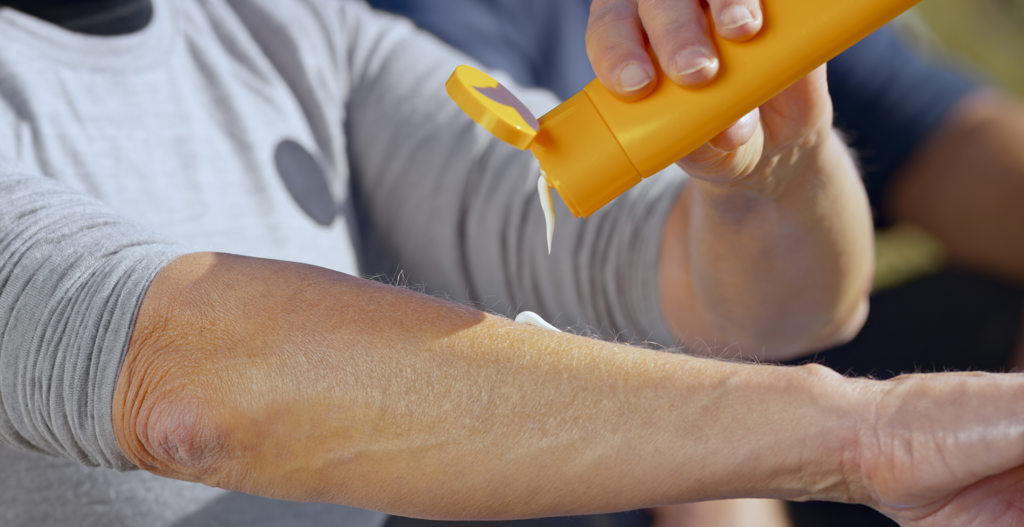Skin Cancer

Did you know that if you have had five or more sunburns in your life, your risk for melanoma is doubled?
“Not all skin cancers are life-threatening, but melanoma is very dangerous,” said Hazem F. Elkassas, MD, at Penn Highlands Oncology/Hematology – Brookville, DuBois and Punxsutawney. “The vast majority of skin cancer deaths are caused by melanoma.”
Melanoma is deadlier than other forms of skin cancer because it rapidly spreads to other organs which makes it more difficult to treat. When melanoma is detected and treated in the early stages, before it spreads to other parts of the body, the five-year survival rate is an astounding 99%.
What is melanoma?
Melanoma is a type of skin cancer that starts in cells called melanocytes found in the upper layer of the skin. Like all cancers, melanoma develops when cells begin to grow out of control, crowding out normal cells and causing your body to malfunction.
Melanocytes produce melanin, a pigment that gives skin its color. Melanoma occurs when ultraviolet (UV) light, whether from the sun or from a tanning bed, damages the skin and causes mutations in the melanocytes, leading to uncontrolled cell growth.
What are the signs symptoms of melanoma?
Melanoma tumors, also referred to simply as melanomas, can develop anywhere on the body. While most melanomas are brown or black, they can also be pink, tan or white. Men are more likely to develop melanomas on the chest or back, and women are more likely to develop them on the legs. The face and neck are other common sites, and while people with naturally darker skin are less susceptible to melanoma, tumors often form on the palms, soles and underneath nails of African Americans and people of color.
About 20% to 30% of melanomas develop in existing moles, while 70% to 80% of melanomas develop on otherwise normal-looking skin. That’s why it is critical to watch for new, changing or unusual moles, sores, lumps, blemishes and markings.
How can you reduce your risk for melanoma?
While age, race and family history all contribute to your risk for melanoma, there are steps you can take to reduce your risk.
“The single best thing you can do is limit your exposure to UV rays,” said Dr. Elkassas. “Avoid tanning beds, use sunscreen daily and when you’re outdoors spend most of your time in the shade.”
“In addition to practicing sun safety, pay attention to abnormal moles,” said Dr. Elkassas. “Early detection gives us the best chance to prevent melanoma from forming or spreading throughout the body. If you notice new or unusual spots on your skin, schedule an appointment with a dermatologist as soon as possible.”
Penn Highlands Healthcare offers a wide range of outpatient cancer treatment and services at locations throughout the region. Penn Highlands also provides cancer screenings, including mammograms, colon cancer screening, prostate cancer testing and lung cancer screening to help patients detect cancer at its earliest stages when it is most treatable. To make an appointment or to learn more, visit www.phhealthcare.org/cancercare.

